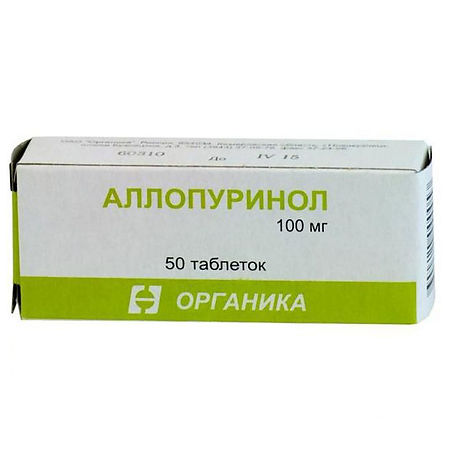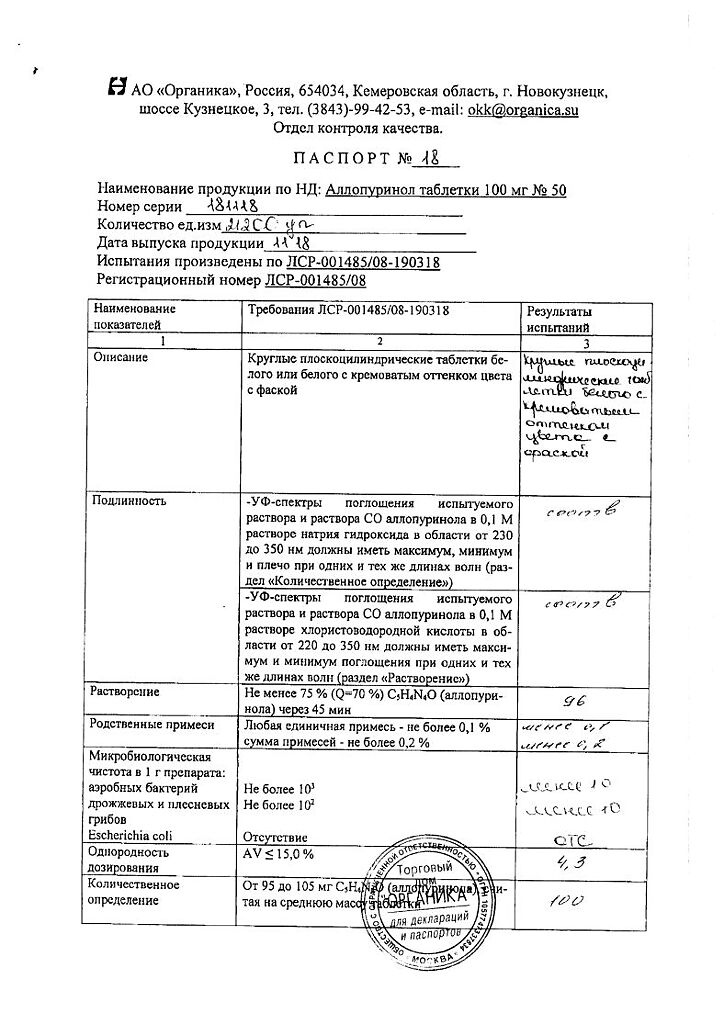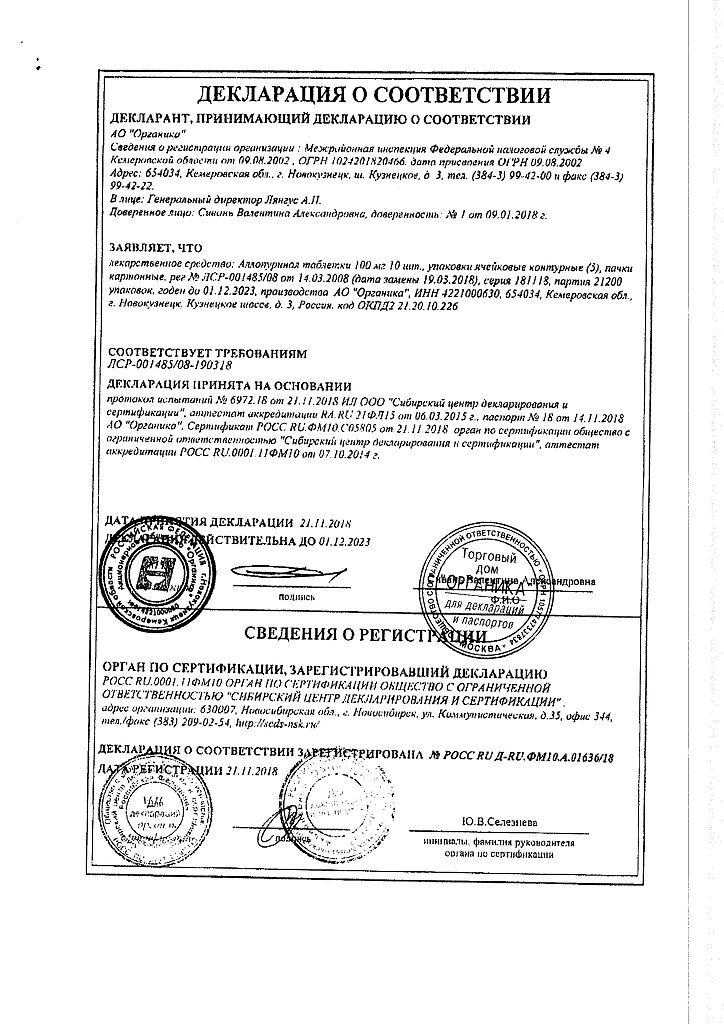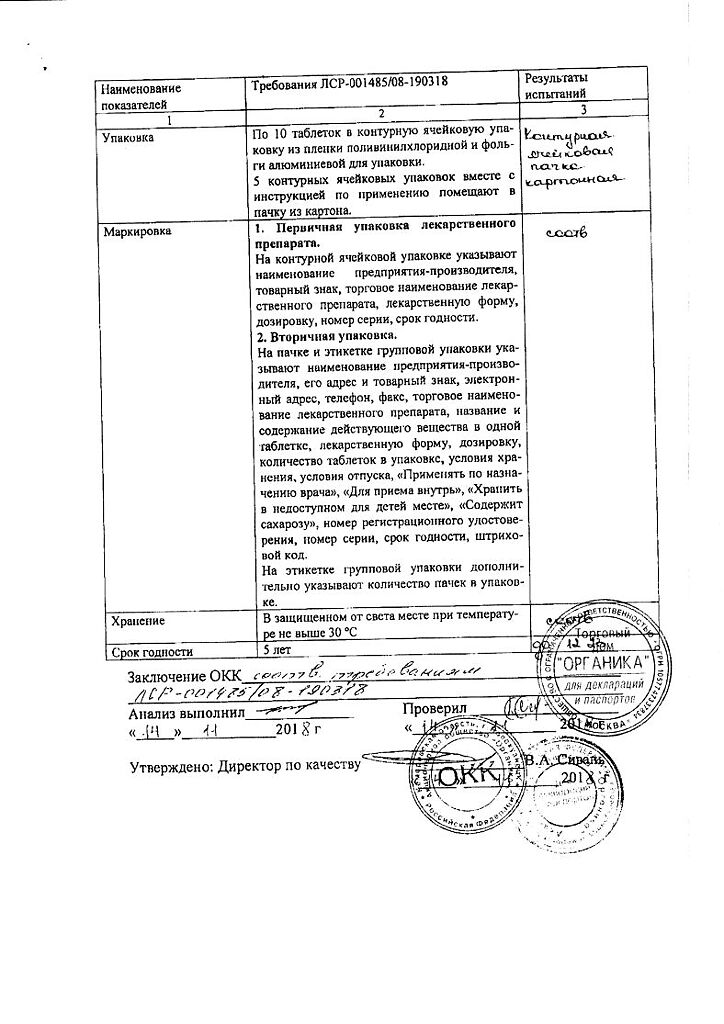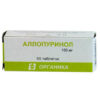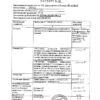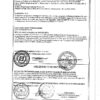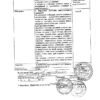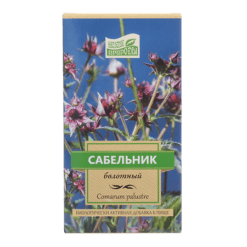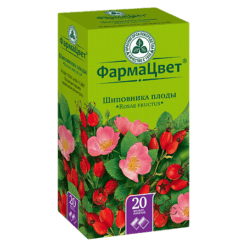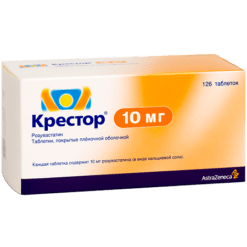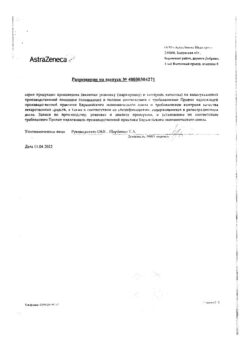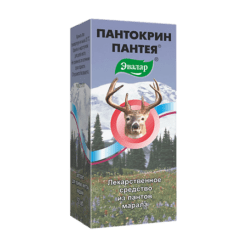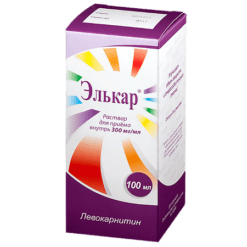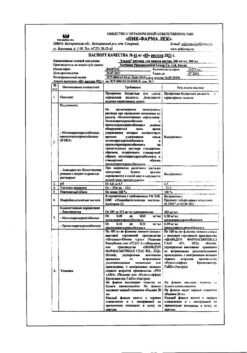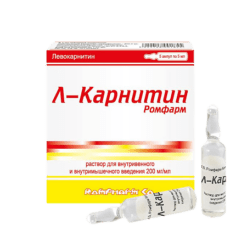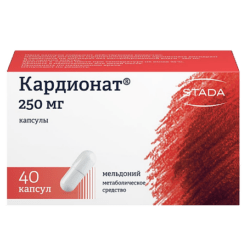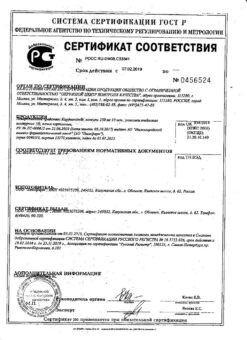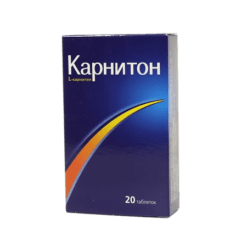No products in the cart.
Allopurinol, tablets 100 mg 50 pcs
€1.00
Out of stock
(E-mail when Stock is available)
Description
A drug that disrupts uric acid synthesis. It is a structural analog of hypoxanthine. It inhibits the enzyme xanthine oxidase, which is involved in the conversion of hypoxanthine into xanthine and xanthine into uric acid. < br>
This results in a decrease in the concentration of uric acid and its salts in the body fluids and urine, which promotes the dissolution of existing urate deposits and prevents their formation in the tissues and kidneys. Taking allopurinol increases urinary excretion of hypoxanthine and xanthine.
< b>Pharmacokinetics
After oral administration, it is almost completely (90%) absorbed from the GI tract. < br>
Metabolized to form alloxanthin, which retains the ability to inhibit xanthine oxidase for quite a long time. < br>
Cmax of allopurinol in plasma is reached on average in 1.5 h, alloxanthin – in 4.5 h after a single dose.
T1/2 of allopurinol is 1-2 hours, of alloxantine about 15 hours. About 20% of the dose taken is excreted through the intestine, the rest through the kidneys.
< br>.
Indications
Indications
treatment and prevention of gout
increased amount of uric acid in the blood
high levels of uric acid in urine during complete therapeutic fasting and therapy with antitumor drugs.
Pharmacological effect
Pharmacological effect
A drug that interferes with the synthesis of uric acid. It is a structural analogue of hypoxanthine. Inhibits the enzyme xanthine oxidase, which is involved in the conversion of hypoxanthine to xanthine and xanthine to uric acid.
This is due to a decrease in the concentration of uric acid and its salts in body fluids and urine, which helps dissolve existing urate deposits and prevents their formation in tissues and kidneys. When taking allopurinol, the excretion of hypoxanthine and xanthine in the urine increases.
Pharmacokinetics
After oral administration, it is almost completely (90%) absorbed from the gastrointestinal tract.
Metabolized to form alloxanthin, which retains the ability to inhibit xanthine oxidase for a sufficiently long time.
Cmax of allopurinol in blood plasma is achieved on average after 1.5 hours, alloxanthin – after 4.5 hours after a single dose.
T1/2 of allopurinol is 1-2 hours, alloxanthin – about 15 hours. About 20% of the dose taken is excreted through the intestines, the rest by the kidneys.
Special instructions
Special instructions
When using the drug Allopurinol, the daily amount of fluid consumed should be at least 2 liters (under the control of the daily amount of urine).
At the beginning of the course of treatment, an exacerbation of the disease may occur; to prevent it, it is recommended to use anti-inflammatory drugs.
During treatment with Allopurinol, large urinary stones may dissolve and subsequently enter the urine. When used in combination, the drug enhances the effect, and in large doses reduces the activity of the drug.
Active ingredient
Active ingredient
Allopurinol
Composition
Composition
1 tablet contains 100 mg allopurinol;
auxiliary ingredients:
lactose,
starch,
polyvidone,
talc,
magnesium stearate,
sodium amylopectin glycolate.
Contraindications
Contraindications
severe dysfunction of the liver and kidneys
hypersensitivity to the drug Allopurinol.
Side Effects
Side Effects
digestive disorders,
liver dysfunction,
weakness,
headache,
visual impairment,
impotence,
rash,
skin redness,
itching,
change in blood picture.
Interaction
Interaction
With simultaneous use, allopurinol enhances the effect of coumarin anticoagulants, adenine arabinoside, as well as hypoglycemic drugs (especially in case of impaired renal function).
Uricosuric agents and salicylates in high doses reduce the activity of allopurinol.
With the simultaneous use of allopurinol and cytostatics, myelotoxic effects are more likely to occur than with separate use.
With the simultaneous use of allopurinol and azathioprine or mercaptopurine, accumulation of the latter in the body is observed, because due to allopurinol inhibition of xanthine oxidase activity, necessary for the biotransformation of drugs, their metabolism and elimination slows down.
Overdose
Overdose
Symptoms: nausea, vomiting, diarrhea, dizziness, oliguria.
Treatment: forced diuresis, hemo- and peritoneal dialysis.
Storage conditions
Storage conditions
In a place protected from light, at a temperature not exceeding 30 °C
Shelf life
Shelf life
5 years
Manufacturer
Manufacturer
Organika, Russia
Additional information
| Shelf life | 5 years |
|---|---|
| Conditions of storage | In a light-protected place, at a temperature not exceeding 30 °C |
| Manufacturer | Organika, Russia |
| Medication form | pills |
| Brand | Organika |
Other forms…
Related products
Buy Allopurinol, tablets 100 mg 50 pcs with delivery to USA, UK, Europe and over 120 other countries.

